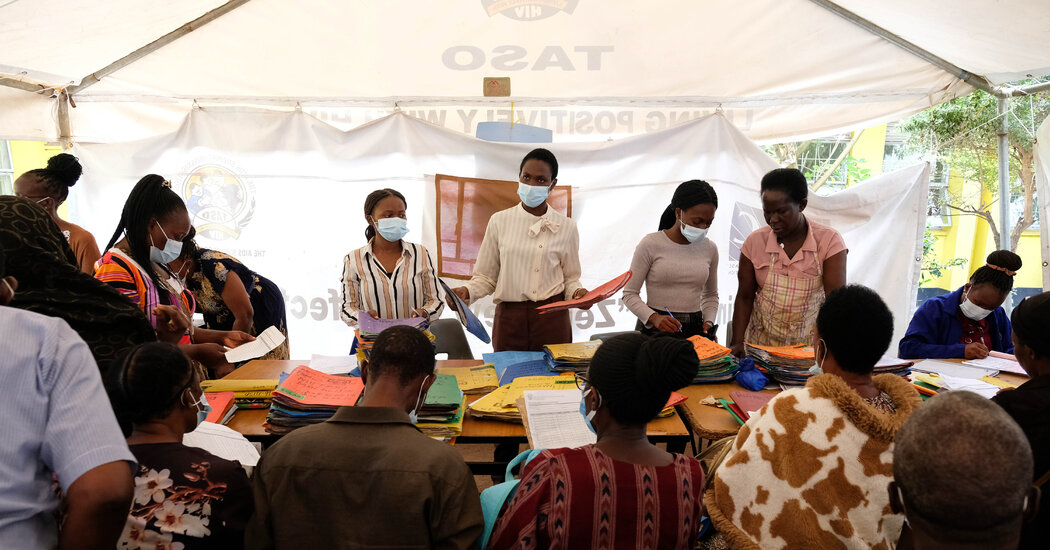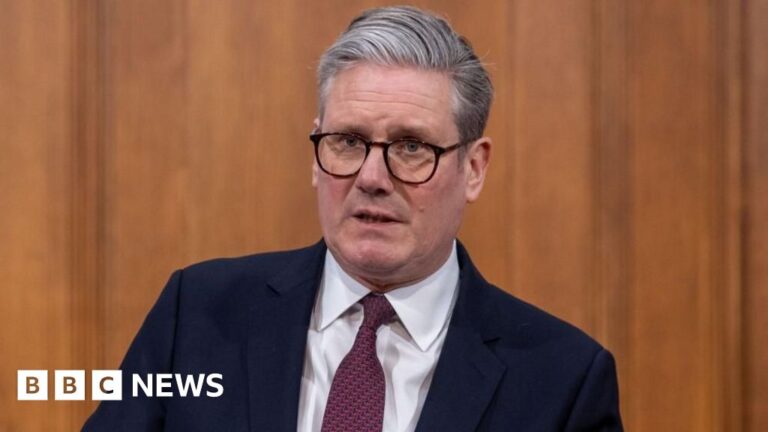Here is the result in plain text:
As the reality sets in that the United States is drastically diminishing its foreign assistance to developing countries, an urgent conversation is starting among governments, philanthropists, and global health and development organizations.
It is centered on one crucial question: Who will fill this gap?
Last year, the United States contributed about $12 billion to global health, money that has funded treatment of H.I.V. and prevention of new infections; children’s vaccines against polio, measles and pneumonia; clean water for refugees; and tests and medications for malaria.
The next largest funder is the Gates Foundation, which disburses a fraction of that amount: its global health division had a budget of $1.86 billion in 2023.
“The gap that has been filled by the U.S. cannot be easily matched by anybody,” said Dr. Ntobeko Ntusi, the chief executive of the South African Medical Research Council.
U.S. assistance has been channeled through the United States Agency for International Development, or U.S.A.I.D., which the new Trump administration has largely dismantled, and other government agencies, including the National Institutes of Health, which is also facing substantial cuts in health research grants.
Many people are suggesting that other countries, particularly China, could move into some of the areas vacated by the United States, Dr. Ntusi said. Others are making urgent appeals to big philanthropies including the Gates Foundation and Open Philanthropy.
This conversation is most consequential in Africa. About 85 percent of U.S. spending on global health went to programs in or for African countries.
For countries such as Somalia, where U.S. aid made up 25 percent of the government’s whole budget, or Tanzania, where the U.S. funded a majority of public health care, the loss is catastrophic. And for the major global health agencies, the situation is similarly critical.
President Trump has already pulled the U.S. out of the World Health Organization, which is now trying to make an initial budget cut of $500 million for 2026-27 to cope with the withdrawal of American funds.
“Most of our neighbors on the continent, they’ve been completely reliant on the U.S. to procure most of the lifesaving medications for endemic infections,” Dr. Ntusi said. “And I don’t see most of the governments overnight being able to have the resources to cope. And so I think there’s going to be devastating consequences on lives lost from Africans who will die of preventable infections.”
The U.S. is the largest donor to Gavi, an organization that supplies essential vaccines to the world’s poorest countries, and to the Global Fund to Fight AIDS, Tuberculosis and Malaria. The U.S. contribution is required by Congress.
U.S. assistance is also used to fund research and development of new medicines, vaccines, and treatments.
The World Bank is best placed to provide long-term support for health spending. The bank has said little so far. It could offer countries hard hit by the U.S. cutoff innovative financing such as debt-for-health-care swaps to give nations struggling under heavy debt burdens some fiscal freedom to make up lost health care funding.
John-Arne Røttingen, the chief executive of the Wellcome Trust, which is among the largest donors to global health research, said in an email that the foundation was “exploring what options might exist” in the new landscape. But, he said, its help would be “a drop in the ocean compared to what governments across the world need to provide.”
Two executives at smaller private foundations said there was a reluctance to say anything publicly because of fear of retribution from the Trump administration, including a potential loss of charitable status.
African governments are under tremendous pressure from frustrated citizens to assume responsibility for the health spending that was coming from the U.S.
In the 24 years since the African Union adopted what’s called the Abuja Declaration, committing its 42 members to spending 15 percent of their budgets on health, only a couple of states have ever hit that target, and for a year or two at most. Average health spending by African countries is less than half that amount.
In Nigeria, the president convened an emergency cabinet committee to make a plan for the budget shortfall, and Parliament allotted an extra $200 million to the national budget last week. But that extraordinary measure illustrates the scale of what’s been lost: it’s less than half of the $512 million that the U.S. gave Nigeria for health care in 2023.
Source link




